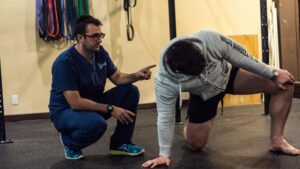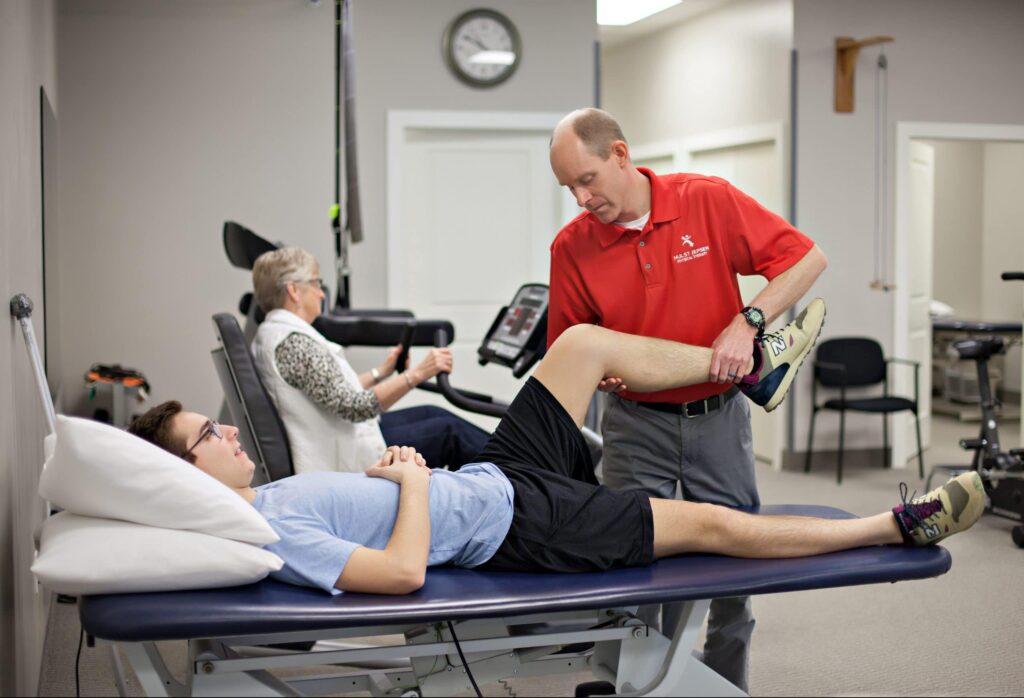Orthopedic clinical specialists are a critical part of the healthcare system and play an important role in treating patients with orthopedic problems. With such a broad range of experience and expertise, these specialists can help patients from all walks of life. In this blog post, we will explore all you need to know about orthopedic clinical specialist and what they can do for you. From their training and skills to the types of patients they typically treat, read on to learn all you need to know about this type of specialist.
Contents
What is an Orthopedic Clinical Specialist?

An orthopedic clinical specialist is a doctor who specializes in the diagnosis and treatment of musculoskeletal disorders. Orthopedic clinical specialists are typically also board-certified in orthopedics. They may have additional training, such as in neurology or rheumatology, which gives them a broader perspective on how best to treat musculoskeletal problems.
Orthopedic clinical specialists can be found in many hospitals and clinics around the country, and they often work together with other specialists to provide comprehensive care for their patients. They often work closely with physical therapists and other rehab specialists to help patients return to their pre-injury levels of function as quickly and safely as possible.
If you are experiencing pain or difficulty mobility due to a musculoskeletal disorder, it is important to speak with your doctor about whether an orthopedic clinical specialist might be able to help you. There is no one-size-fits-all approach to treating these issues, so your doctor will likely refer you to an orthopedic clinical specialist if they believe that he or she is the best person for the job.
What Are The Duties of an Orthopedic Clinical Specialist?
The duties of an Orthopedic Clinical Specialist are wide-ranging and require a lot of expertise. They can range from assisting medical professionals in diagnosing and treating musculoskeletal injuries and disorders to providing rehabilitation services for those with chronic conditions or disabilities. Orthopedic Clinical Specialists are also involved in the management of pain, the development of treatment plans, and patient education.
The primary duties of an Orthopedic Clinical Specialist include performing physical examinations on patients, evaluating diagnostic imaging such as X-rays and MRI scans, creating treatment plans based on findings, prescribing interventions like exercises, manual therapy techniques, and medications, educating patients about self-care measures, tracking progress during treatments, coordinating care with other healthcare providers, monitoring results over time and repairing medical devices or equipment used in treatment.
Other duties of an Orthopedic Clinical Specialist may include setting up and supervising physical rehabilitation programs, providing advice on lifestyle modifications to prevent injuries or further damage, documenting cases for reference and research purposes, helping patients understand their medical conditions, and participating in community outreach events.
What Are The Benefits of Visiting An Orthopedic Clinical Specialist?

Orthopedic clinical specialists are highly qualified medical professionals who have earned a doctor of medicine (MD) or a doctor of osteopathy (DO) degree. They specialize in the diagnosis and treatment of injuries and ailments that relate to the bones, joints, muscles, nerves, and other tissues in the body. Orthopedic clinical specialists can provide expert care for conditions such as arthritis, back pain, and joint replacement surgery.
Some of the benefits of being an orthopedic clinical specialist include:
Ability to diagnose and treat injuries quickly and accurately
One main focus of an orthopedic clinical specialist is to provide quick and accurate diagnosis and treatment of injuries. This allows patients to get back to their normal lives as quickly as possible. Orthopedic clinical specialists are also skilled in the use of prescription and over-the-counter medications, as well as physical therapy and other treatments.
Specialized training in orthopedics
Orthopedic clinical specialists have completed specialized training in orthopedics. This training provides them with the knowledge and skills necessary to diagnose and treat injuries related to the bones, joints, muscles, nerves, and other tissues in the body. This specialist knowledge makes them very effective at treating conditions such as arthritis, back pain, and joint replacement surgery.
Strong patient relationships
Orthopedic clinical specialists have strong patient relationships because they understand how important it is for patients to get back to their normal lives as quickly as possible. They also know how best to treat various injury conditions. As a result, patients tend to feel comfortable talking with an orthopedic clinical specialist about their symptoms and needs.
High level of experience and expertise when treating patients with orthopedic issues
An orthopedic clinical specialist has years of experience and expertise when it comes to treating patients with orthopedic issues. This knowledge allows them to provide the best possible care for their patients. This includes the use of prescription and over-the-counter medications, as well as physical therapy and other treatments.
The ability to provide continuity of care for patients
Orthopedic clinical specialists can provide continuity of care for their patients. This means that the specialist will be with the patient from the time of their initial injury or diagnosis until they can return to their normal life. In addition, orthopedic clinical specialists are often available to provide follow-up care after treatment is complete. This allows patients to stay on top of their treatment and ensure that they are getting the best possible care.
What Do Orthopedic Clinical Specialists Provide?
Orthopedic clinical specialists provide an array of diagnosis and treatment services related to musculoskeletal conditions. This includes evaluating joint mobility, assessing muscle strength and range of motion, diagnosing various problems such as arthritis, performing advanced imaging tests like MRI scans, providing nonsurgical treatments such as physical therapy and therapeutic exercises, offering minimally invasive surgical treatment options such as arthroscopy, and recommending lifestyle modifications. They may also refer patients to other medical professionals for further treatment if needed.
The goal of orthopedic clinical specialists is to help patients regain their optimal level of function as quickly as possible. To that end, they strive to provide personalized treatment plans tailored to the individual’s needs and goals. This includes offering a variety of conservative treatments such as physical therapy, therapeutic exercises, lifestyle modifications, and medications before resorting to surgery if necessary.
Some of the musculoskeletal conditions that orthopedic clinical specialists treat include sports injuries, arthritis, carpal tunnel syndrome, rotator cuff tears, shoulder impingement, tendonitis, bursitis, and other types of joint pain. These specialists also specialize in providing treatment for degenerative joint diseases like osteoarthritis and rheumatoid arthritis as well as spinal disorders such as herniated discs.
How To Consult Orthopedic Clinical Specialists?

Consulting an orthopedic clinical specialist is a process that may involve referrals, diagnostic tests, or physical examinations. Depending on the condition or injury being treated, there are various steps and procedures to be followed.
There are many ways to consult an orthopedic clinical specialist. Your primary care physician or family doctor might refer you to a specialist, or your health insurance provider may have a list of specialists in your area. You can also search for one online or inquire about them at local medical facilities.
Some of the other sources of information that you can use to locate an orthopedic clinical specialist include professional associations, such as the American Academy of Orthopaedic Surgeons (AAOS), and medical colleges or universities. It is important to ask questions about the clinic’s policies, procedures, and patient care when selecting a specialist.
Once you have identified an orthopedic clinical specialist in your area, it is important to schedule a consultation with them. During the initial visit, your doctor will evaluate your condition by performing a physical examination and asking questions regarding your medical history. They may also take x-rays or other imaging tests to assess any structural abnormalities or damage caused by trauma.
Before consulting the specialist, it is important to gather all relevant medical history and information on the condition that needs treatment. This helps the specialist understand the severity and nature of your injury or condition and provide appropriate recommendations. It is also important to ask questions during your initial consultation as this will help give you a better understanding of how they plan on treating you.
Conclusion
Orthopedic clinical specialists are a type of doctors who specializes in treating patients with orthopedic issues. They may work in hospitals or private practice, and they often have additional training in trauma care or neurosurgery. This kind of specialist is important for people who have disabilities that affect their joints, such as arthritis or injuries sustained from accidents. If you are experiencing pain or difficulty moving your joints, it might be worth considering seeing an orthopedic clinical specialist. Thank you for reading!
Physical Therapy help patients recover from pain. If you’re experiencing Back pain, Shoulder pain, Knee pain, Neck pain, Elbow pain, Hip pain, or Arthritis pain, a physical therapist at MantraCare can help: Book a physiotherapy session.


